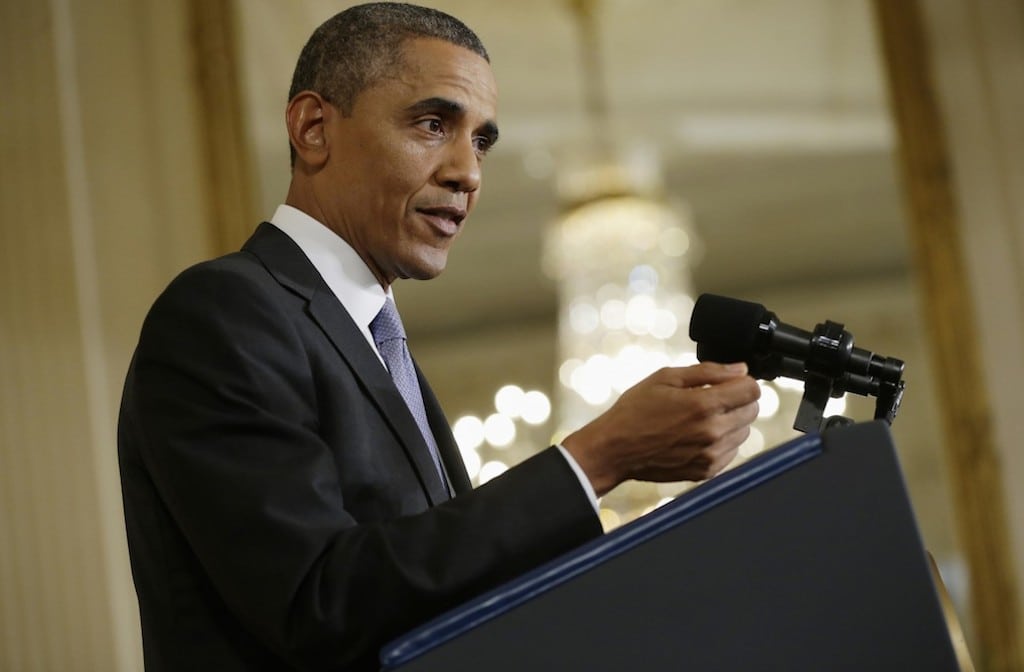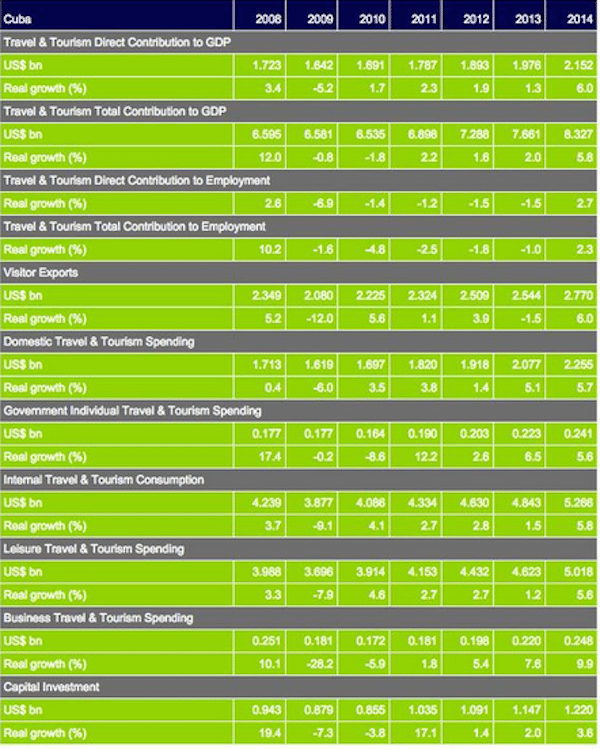Skift Take
Like Obama said, the U.S. has diplomatic relations with China and Vietnam, so turning a deaf ear to Cuba and Cubans made no sense. U.S. travel companies are chomping at the bit to get into Cuba.
In a White House speech, President Obama said the U.S. is taking steps to ease restrictions on travel to Cuba, and that U.S. citizens would be able to use their credit cards and debit cards when visiting the island nation.
Acknowledging that only Congress could overturn the decades-old U.S. embargo of Cuba, Obama said the U.S. will reestablish an embassy in Havana, normalize relations, and U.S. financial institutions will be able to open accounts with Cuban financial institutions.
Money-transfer rules will also be loosened, he said.
Confirming earlier reports about an historic breakthrough in relations coinciding with a prisoner exchange, Obama didn’t provide any detail on how travel restrictions would be eased.
But the White House issued a statement indicating that travel will be eased for the existing 12 categories of people allowed to travel to Cuba, although the idea of everyday Americans just hopping a plane or cruise to Cuba is not envisioned in the new policy.
Specifically, the White House revealed the following steps:
Facilitating an expansion of travel under general licenses for the 12 existing categories of travel to Cuba authorized by law-
- General licenses will be made available for all authorized travelers in the following existing categories: (1) family visits; (2) official business of the U.S. government, foreign governments, and certain intergovernmental organizations; (3) journalistic activity; (4) professional research and professional meetings; (5) educational activities; (6) religious activities; (7) public performances, clinics, workshops, athletic and other competitions, and exhibitions; (8) support for the Cuban people; (9) humanitarian projects; (10) activities of private foundations or research or educational institutes; (11) exportation, importation, or transmission of information or information materials; and (12) certain export transactions that may be considered for authorization under existing regulations and guidelines.
- Travelers in the 12 categories of travel to Cuba authorized by law will be able to make arrangements through any service provider that complies with the U.S. Treasury’s Office of Foreign Assets Control (OFAC) regulations governing travel services to Cuba, and general licenses will authorize provision of such services.
- The policy changes make it easier for Americans to provide business training for private Cuban businesses and small farmers and provide other support for the growth of Cuba’s nascent private sector. Additional options for promoting the growth of entrepreneurship and the private sector in Cuba will be explored.
Obama said when he came into office, he promised a review of relations with Cuba. Soon after getting into office he eased restrictions on Cuban-Americans’ travel to Cuba and he said these sorts of exchanges “now seem obvious.”
Obama said the U.S. governments’ sanctions against Cuba was an “outdated approach” and have had “little effect” other than to provide the Cuban government with a rationale to oppress the Cuban people.
The president noted that the U.S.has had diplomatic relations with two communist countries, namely China for more than 35 years and Vietnam for nearly two decades, and that it is in the interests of the U.S. and the Cuban people to reestablish ties.
Obama said the U.S. is also interested in enhancing the flow of information into and out of Cuba, and will increase telecommunications links and equipment between the two countries.
Obama’s announcement coincided with prisoner exchanges between the two countries, with assistance from the Pope and talks hosted by Canada, he said.
The president said he will work with Congress and will engage in “serious debate” about lifting economic sanctions against Cuba — a move that the Republican-controlled Congress next year will likely oppose.
Obama said he was under no illusion that normalizing relations with Cuba would alter its foreign policy or turn it into a democracy, but could provide some benefits to the Cuban people.
Even before the implementation of eased restrictions on Americans’ travel to Cuba, the Cuban tourism industry has been on the rise, increasing its contribution to the country’s GDP 6 percent in 2014, according to the World Travel and Tourism Council.
See chart below:
The Daily Newsletter
Our daily coverage of the global travel industry. Written by editors and analysts from across Skift’s brands.
Have a confidential tip for Skift? Get in touch
Tags: cuba
Photo credit: In this file photo, President Barack Obama gestures during his news conference in the East Room of the White House in Washington, Friday, Aug. 9, 2013. Pablo Martinez Monsivais / Associated Press

